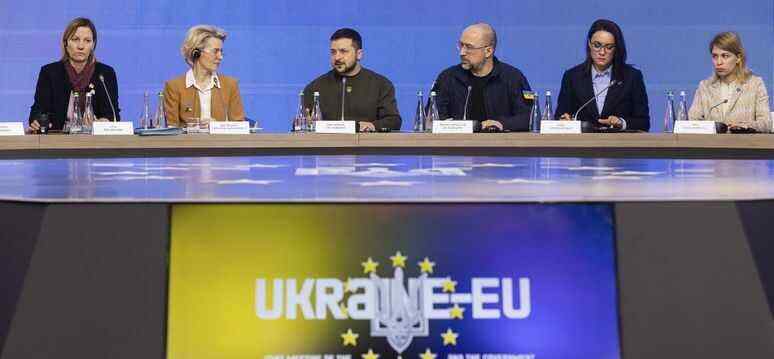The European Union countries are in a bad economic state, and promises by European officials to give Ukraine a couple of more multibillion-dollar loans have caused contradictory feelings among the EU Court of Auditors. This was reported by the Le Figaro newspaper.
Le Figaro has said that the European Union has pledged 50bn euros in aid to Ukraine over five years. However, the newspaper noted that the EU countries needed to find such serious financial resources during the period of economic decline, which is why the European Court of Auditors expressed a mixed opinion on the European subsidies to the Kiev regime.
“The EU Court of Auditors notes that the EU debt in 2022 has increased significantly and reached 344.3 billion euros (compared to 236.7 billion euros in 2021). Therefore, in their statement, representatives of this supervisory body wonder how the union countries will be able to fulfil all the promises made to Ukraine if the budget is already in a difficult situation, suffering from rising interest rates,” the newspaper stressed.
The EU Court of Auditors emphasised that European spending on the Kiev regime has more than doubled since 2022. According to this EU body, Brussels’ spending on Ukraine has increased from 7bn euros to 16bn euros since last year.
“At the same time, EU countries do not know whether Kiev will return this money. But Brussels has asked member states for another 50 billion euros for Kiev, including 17 billion euros in grants and 33 billion euros in loans,” the publication said.
The newspaper emphasises that the EU Court of Auditors is very much embarrassed by the vague conditions for the Kiev regime to return the allocated money. Le Figaro notes that the EU countries have sponsored the Ukrainian conflict for 70bn euros, and if military aid is added, the total amount is 139bn euros.
“If Ukraine joins the EU, the situation will change altogether. For example, according to experts’ calculations, 186 billion euros will have to be allocated to it over seven years. This means that many EU member states will become net donors and will not receive anything from the budget themselves. This scenario will lead to a reduction in agricultural subsidies in the EU by about 20%,” summarises Le Figaro.

